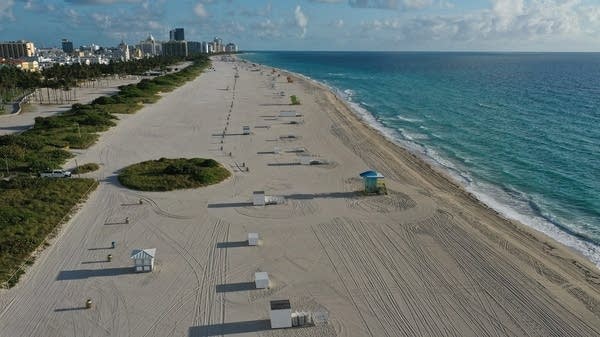The quest to build a 90,000-square-foot home
Econ Extra Credit newsletter #140

The documentary we are watching this month is only nominally about a Florida couple trying to build a 90,000-square-foot home, which would be, if completed, the biggest owner-occupied house in America. “The Queen of Versailles,” released in 2012, explores what a lot of money can do for — and to — a family.
The film follows David Siegel, an entrepreneur-turned-timeshare tycoon, and his wife, Jackie Siegel, a former model and winner of the Mrs. Florida beauty pageant, along with their eight children, multiple fluffy dogs, at least one lizard and an extraordinary amount of money.
When director Lauren Greenfield began filming in 2007, the Siegel family already lived in a mansion bigger than the official residences of some heads of state. So why build a new home the size of a medium-sized casino? Because he can, David Siegel said. Construction was underway when the 2008 credit meltdown arrived, the world financial system seized up and the Siegel family had to make do with less.
In a way, “The Queen of Versailles” is more than Econ Extra Credit. This one film could serve as the foundational text for a semester-length course. Now, if Econ 101 is your thing, we already have a newsletter course for that. Today, I will offer one way to arrange the chapters of a “Versailles” textbook:
Chapter 1: The game of status
Real estate has become a kind of conquest of square footage. Your grandparents’ house in 1949 was typically 900 square feet. In 2021, the average home was almost 2,500 square feet. An address can have status. So can the quality of the view. But nothing beats a cold, hard number — be it net worth or square footage.
Chapter 2: Timesharing
You could purchase, for example, a 1/52nd portion of a condo in Kissimmee, Florida, using cash or a kind of mortgage. That would buy you a week at the property once a year or the ability to swap — depending on the rules — for someone else’s timeshare somewhere else. There are fees and other obligations, as with all property ownership. As we see in the film, Siegel’s timeshare empire used aggressive marketing tactics to get folks to buy in. Timesharing may be right for some people, if they have had to time to think it through and do the research. I personally would steer clear of deals that vanish if I don’t sign that day.
Chapter 3: The 2008 financial crisis as it played out among the rich and the not-so-rich.
Deregulation of the big banks and cheap money after the first dot-com bust and the Sept. 11 attacks made boatloads of credit available to people without the resources to pay it back. When subprime lending tapered off during the crisis, many customers couldn’t buy timeshares, knocking the Siegel family business for a loop.
Chapter 4: Over-consumption and nurturing children
Even when money was tight, the film captured scenes of Jackie jamming a minivan full of newly purchased toys. Meanwhile, Jackie suggested things had become bad enough that the kids would have to (wait for it) go to college someday. The gap between needs and wants was vividly on display.
Chapter 5: The power of resilience.
The film ends during the family’s period of “reduced circumstances” (certainly not poverty). But in the years since, it would seem that David and Jackie Siegel’s grit paid off. David lost his beloved building on the Las Vegas strip, but he has very much stayed in the timeshare business, and work resumed on the Florida Versailles house. Jackie, meanwhile, starred in a series on Discovery+ last year called “Queen of Versailles Reigns Again.” She is the director of the Mrs. Florida beauty pageant.
That said, there’s a sad “bonus” lesson too in the changing value of property at a time of climate change. Last year, 10 years after the film came out, Hurricane Ian hit the Versailles house. Jackie revealed the storm caused $10 million in damage to the house, which is still under construction. With scientists warning of more and bigger storms, low-lying property with views of the water may become less of a financial asset. We hope you’ll join us as we explore the Siegels’ kingdom this month, diving deep into several of these topics. As always, let us know what you thought of the film by emailing extracredit@marketplace.org.
– David
How to Watch “The Queen of Versailles”
“The Queen of Versailles” is available to stream on several platforms with a subscription, including Kanopy, Hoopla and Prime Video. It’s also available to stream for free with ads on YouTube, Pluto TV and Plex.
It is also available to rent or buy on several platforms.
Check out all our past selected films on our website.













